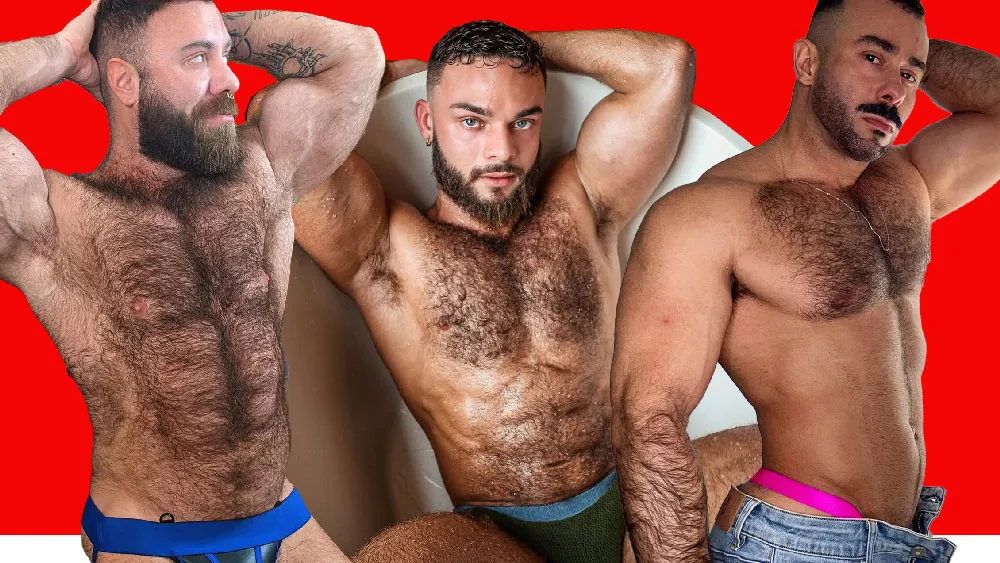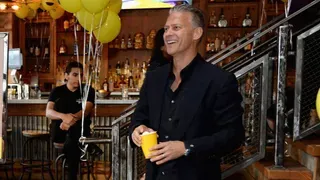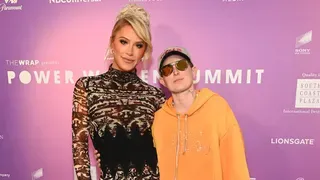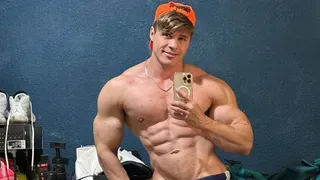August 24, 2021
British Elite Cyclist Clay Davies Comes Out
Kilian Melloy READ TIME: 3 MIN.
LGBTQ+ athletes have a new hero and role model in British elite cycling champ Clay Davies, who just came out as gay – the only British cyclist at his level to do so.
Davies made the disclosure in an interview with cycling publication The British Continental, explaining what it was that caused him to decide to embrace authenticity,�and addressing the homophobia that saturates the sport. Even on the international scene it's only the occasional brave soul – like Belgian cycling champ Justin Laevens – who will forsake the comforting confines of the closet.
The publication noted that Davies, who rides with Spirit Bontrager BSS Rotor, "has been openly gay amongst friends and family for seven years, but, until now, this isn't something he has revealed to the wider world."
Davies recounted what it took to get him to be honest with the people in his life: A potentially fatal accident in which he was "knocked off my bike by a car [and] nearly... killed," breaking both arms in the accident and also having "my head crushed by the rear wheel of an Audi."
Though that accident, which happened early in his career, was the moment Davies decided to be authentic within his inner circle, he still kept quiet when it came to the rest of the world.
Davies pointed to the cycling culture as the reason, saying that those who participate in the sport "might behave strangely if they knew you were gay." To illustrate his point, he recalled being at a training camp with a fellow rider who refused to use the shower at the same time he did, and once went so far as to lock Davies out of the facility.
Davies also described how, during a road race championship a few years ago, he overheard "homophobic slurs being thrown around" by the riders.
"It was nasty," the athlete said, describing how the ugly words sparked a fire that helped him blaze to the finish line: "I was so bloody angry, I said, 'Screw this' and emptied myself to get across and placed third."
But if homophobic comments fueled the fire of that success, the effort of staying hidden as a gay man was "exhausting," Davies admitted.
"It requires an enormous amount of energy, mental energy, to be in the closet.... you're constantly worried. Worried about friends seeing you out with someone, or seeing that you're on a dating app, or whatever. It's just a constant drain on your energy."
Davies also attributed youthful insecurity as a factor.
"As a youngster, if you're gay but haven't felt able to share that with your family and friends, then there is no support network around you. No care, love, and support to back you up," Davies told the publication. "It can become a spiral of doom, effectively, becoming isolated, depressed, hiding who you are."
As for himself, the 29-year-old said, "I'm at the age where I don't really give a monkey's."
Davies' interview came after another publication, Cycling Weekly, published an article that investigated why there seems to be a "conspicuous absence of openly LGBTQ+ riders in the pro peloton, especially among the men."
That article, while well-received and drawing accolades, also prompted criticism from cycling fans who complained "that journalists should 'keep sexuality out of cycling,' " The British Continental noted.
Davies lamented the essential absurdity of the sporting world's fictions around sexuality – namely, the pretense that all top-level athletes are automatically heterosexual.
"The irony of course is that cycling is all about men obsessing about the way they look," the champion athlete pointed out. "They're wearing lycra, shaving their legs, it's a very visual sport.... It's a stark comparison to rugby players, for example. Rugby players, in my experience, are some of the most open people about their sexuality."
Kilian Melloy serves as EDGE Media Network's Associate Arts Editor and Staff Contributor. His professional memberships include the National Lesbian & Gay Journalists Association, the Boston Online Film Critics Association, The Gay and Lesbian Entertainment Critics Association, and the Boston Theater Critics Association's Elliot Norton Awards Committee.







